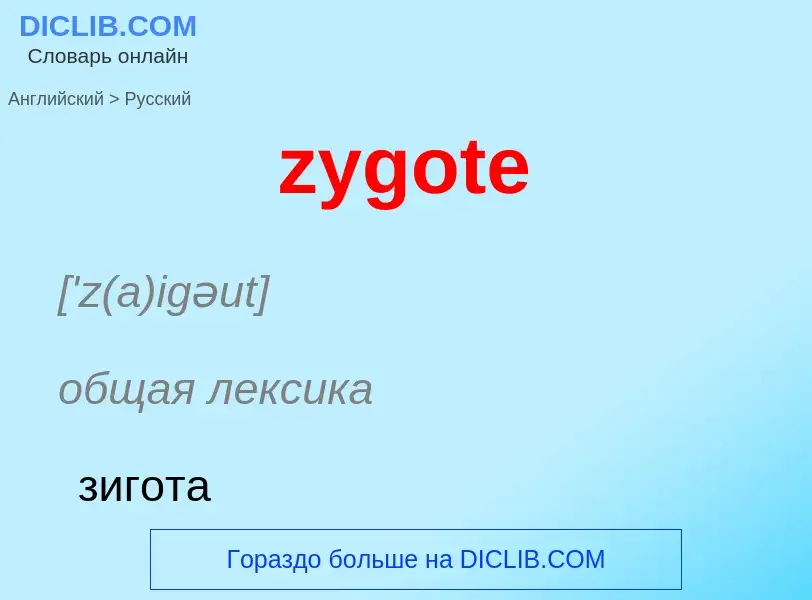Translation and analysis of words by ChatGPT artificial intelligence
On this page you can get a detailed analysis of a word or phrase, produced by the best artificial intelligence technology to date:
- how the word is used
- frequency of use
- it is used more often in oral or written speech
- word translation options
- usage examples (several phrases with translation)
- etymology
zygote - translation to russian
['z(a)igəut]
общая лексика
зигота
существительное
биология
зигота
общая лексика
зиготический
[z(a)i'gəusis]
общая лексика
зигозис
слияние гамет
биология
конъюгация
объединение гамет
медицина
зигозис (половое слияние двух одноклеточных организмов)
существительное
биология
конъюгация
объединение гамет
Definition
Wikipedia

A zygote (from Ancient Greek ζυγωτός (zygōtós) 'joined, yoked', from ζυγοῦν (zygoun) 'to join, to yoke') is a eukaryotic cell formed by a fertilization event between two gametes. The zygote's genome is a combination of the DNA in each gamete, and contains all of the genetic information of a new individual organism.
In multicellular organisms, the zygote is the earliest developmental stage. In humans and most other anisogamous organisms, a zygote is formed when an egg cell and sperm cell come together to create a new unique organism. In single-celled organisms, the zygote can divide asexually by mitosis to produce identical offspring.
German zoologists Oscar and Richard Hertwig made some of the first discoveries on animal zygote formation in the late 19th century.


